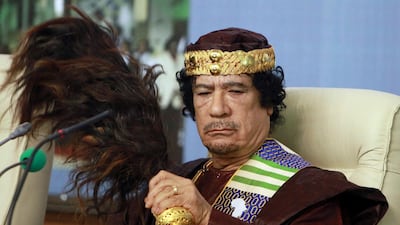British officials have asked the biographer William Shawcross to advise the government on efforts to gain redress for victims of IRA attacks supported by the Qaddafi regime.
Mr Shawcross is a journalist and research fellow who led the UK’s Charity Commission between 2012 and 2018. He identified groups both knowingly and unknowingly using charities to fund and aid terror and extremism.
His role will be to guide the government on its approach to seeking redress for the victims of Qaddafi-funded attacks, including levels of compensation.
“It is excellent that William Shawcross has agreed to take on this important new role, which will help move us closer to resolving this pressing issue,” said Middle East Minister Alistair Burt.
“I am confident that William’s appointment will bring greater focus to our efforts to support the victims of these terrible acts of terrorism.”
Throughout the sectarian conflict in Northern Ireland, commonly known as The Troubles, Libya was linked to the IRA. In 1973 the Irish navy discovered five tonnes of weapons provided by Libya on a ship called the Claudia off the coast of Ireland.
In 1987 a similar weapons cache was discovered by French authorities. Libyan Semtex has been linked to over 250 IRA bombings including the Enniskillen bomb, which killed 12 in November 1987.
“I am honoured to be asked to undertake this hugely important challenge,” Mr Shawcross said.
“The victims of the IRA terrorism sponsored by Qaddafi deserve all support for their efforts to obtain redress from the Libyan government.”
Muammar Qaddafi was killed in October 2011 by rebels to his 42-year rule and a stable government is yet to emerge, making it difficult for any reconciliation actions to be agreed. General Khalifa Haftar and his military allies the Libyan National Army hold much of the east, while Prime Minister Fayez Serraj heads the internationally-recognised government (GNA) in Tripoli. Ageela Saleh, leader of the Libyan House of Representatives and Khaled Meshri, head of the State Council, an advisory body to the GNA, also hold power and influence.

